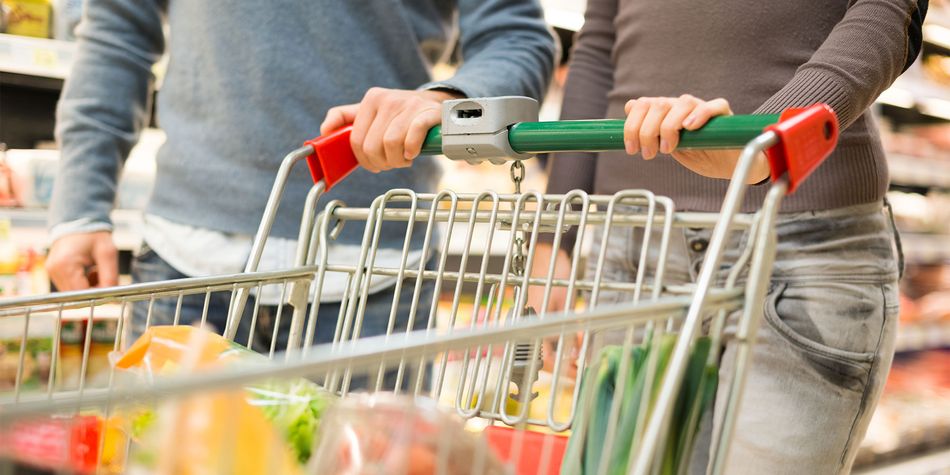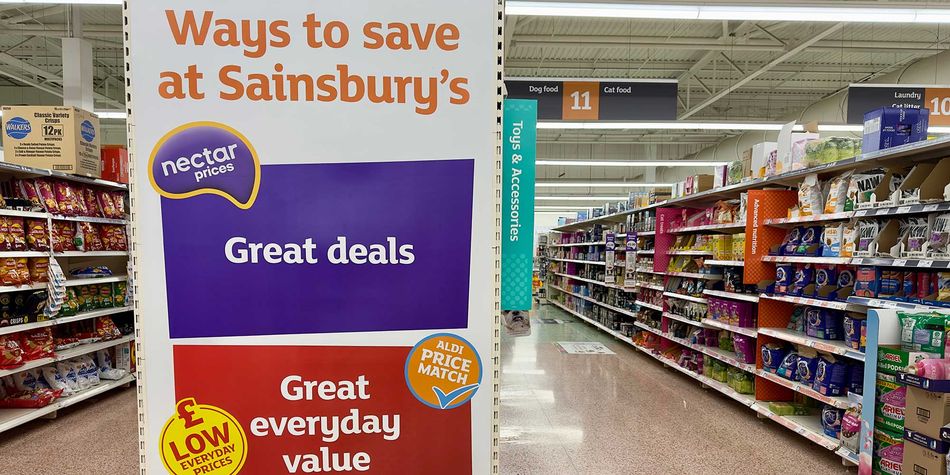How AI and tech are changing in-store supermarket shopping

UK supermarkets have introduced a wave of new tech and artificial intelligence (AI) features to stores over the past year.
These retailers often claim that new in-store innovations, such as digital shelf labels and checkout cameras, will improve the shopping experience for customers.
But when Which? surveyed its members about the changes they'd seen in their local stores, not all shoppers were convinced.*
Here, we look into how shoppers are experiencing in-store supermarket innovations, and speak to retail experts about what could come next.
How the supermarket checkout is changing
The supermarket checkout has evolved rapidly in recent years, with the mass roll-out of self-service machines and 'just walk out' shopping.
In 2021, Amazon launched its first Amazon Fresh check-out free store, allowing people to walk in and walk out without physically paying for what they picked up. However, earlier this year, Amazon announced it would be closing all 19 of its Amazon Fresh stores, to focus on its online grocery business.
That hasn't deterred big supermarkets, though. Some stores have introduced self-scanning devices, allowing you to scan your shopping via the store's app as you walk around the aisles, speeding up the checkout process, and allowing you to see how much you are spending as you go.
Some retailers have experimented even further; Waitrose has launched a trial of 'smart carts' - which recognise products as they're put in the trolley - in some of its stores, and Morrisons is set to trial AI-powered trolleys in 2026.

But despite these innovations, the majority (51%) of Which? members in our survey told us their preferred method of paying for groceries was still at a till with a cashier.
Only 24% said they preferred using a self-scanner, versus 18% who said they'd opt for a self-service machine.
The risk of having your shop re-scanned by security was a recurring pain point for some self-scan users. 'The large Sainsbury’s store in our town is now doing more full, random trolley rescans,' one participant said.
'I've used self-scanners, which often save time, but I've been put off by delays caused by regular checks of shopping to ensure items have been paid for,' another explained.
Reducing waste: electronic shelf labels and fruit scanners
You may have noticed digital pricing labels on shelves in some supermarkets.
These ‘electronic shelf labels’ allow stores to automatically update prices, rather than relying on shop assistants to manually change them, and are thought to help reduce paper and food waste.

But these labels have brought pricing transparency into question for some shoppers in our survey.
'Electronic price displays make me distrust the supermarket,' one participant said. 'It looks like they're cheating on the price, so I prefer to shop somewhere else.'
'Changeable price tickets feel dangerous,' another told us. 'Will it be the price I saw when I picked up the product by the time I get to the till? Will I have to take pictures of the price at the time I selected the item in case it's since changed?'
Others worried it might be more difficult to spot price cuts and deals, which are traditionally printed in yellow or red stickers or labels to make them stand out.
Toby Pickard, Retail Futures Senior Partner, Institute of Grocery Distribution (IGD), told us about other ways retailers are using tech to improve sustainability: 'Recently we've seen Tesco trialling avocado scanners.
'You can pick up an avocado, hold it against a scanner, and it will tell you whether the avocado is ready to be smashed onto toast or whether it needs a few more days to ripen. Things like this will really help the industry become more efficient and reduce food waste.’
- Read more: supermarkets and the environment
Increased surveillance in stores
Many supermarkets have increased their use of cameras in a bid to tackle rising levels of shoplifting and monitor stock levels on shelves.
Some stores use cameras at self-service checkouts to monitor for unscanned items. If a mistake is made, the screen replays the error to notify the customer.
Sainsbury's has gone further, trialling facial recognition technology in selected stores to identify shoppers who are wrongdoing.
Some shoppers in our survey felt reassured that increased surveillance might help curb shoplifting, and were hopeful it could speed up checkout for age-restricted items, too. ‘[I] would welcome [more cameras] if it meant I could buy alcohol at self-checkout and not have to wait for authorisation, and also if it reduces crime,' said one participant.
But data privacy was a concern for some Which? members. ‘I would be very suspicious of how the supermarkets would use the technology to the point that I would stop using self-service tills or even stop shopping at the supermarket concerned,’ one person said.
Others questioned the inherent bias of facial recognition technology: ‘[I’m] concerned. The technology is imprecise, error-prone and subject to racial bias…I mistrust the use of my data, especially if sold or hacked.’
Supermarket apps are getting more sophisticated
Having to rely on your smartphone to make use of new in-store tech features was a barrier for some.
'All this tech just fills up my phone memory and makes shopping more complicated,' said one participant, while another insisted, 'I won't use [any new tech feature] that relies on a phone app, or worse still, scanning a QR code.'
But others found certain supermarket app features useful. When we asked members which technology they'd like to see more of in their local stores, 42% of respondents said they wanted more supermarket apps to tell them exactly where they can find products in-store - a feature that Morrisons' app rolled out earlier this year.
One shopper noted how they find this functionality 'particularly helpful when supermarkets rearrange their products.'
Looking ahead, Kris Hamer, Director of Insight at the British Retail Consortium, says we may see retailers start to work more collaboratively on loyalty apps: 'Over time, we may see the consolidation of loyalty card apps as opposed to having one for every single retailer. Retailers are taking on significant additional costs to manage their loyalty schemes separately.'
- Find out more: loyalty schemes compared
Will technology ruin the shopping experience?
A decline in customer service as a result of new technology was also a concern for Which? members.
'I’m not a fan of [self-service checkouts or self-service hand-held scanners] as I’m of the view that this is just another way of eroding any form of customer service in stores. In quite a few stores using this type of technology, finding a staff member to get assistance is almost a major project,' one participant said.
‘I’m disabled and elderly and need assistance with shopping. I do feel concerned that the remoteness of service and emphasis on speed adversely affects any possible pleasure in the activity of shopping,' said another.

Fortunately, retail experts told us that supermarkets are keen to find a balance between digital and more traditional ways of shopping.
‘Retailers recognise that it’s not one or the other in terms of cashier-manned or self-checkouts. Over the last year, I’ve seen more refined models, with most large stores giving you the choice of using a handheld scanner, using a self-checkout, or visiting a cashier - for trolleys as well as baskets,' Kris from the BRC told us.
Toby from the IGD agreed: 'We know there are parts of the UK where cash is used heavily, so these stores will need options that allow customers to pay by cash. We've also seen some retailers open what they call chatty checkouts, which are designed for people who still want to have a conversation with the person on the till.'
- Find out more: best and worst supermarkets
* In October 2025, we surveyed 1,338 Which? Connect members



